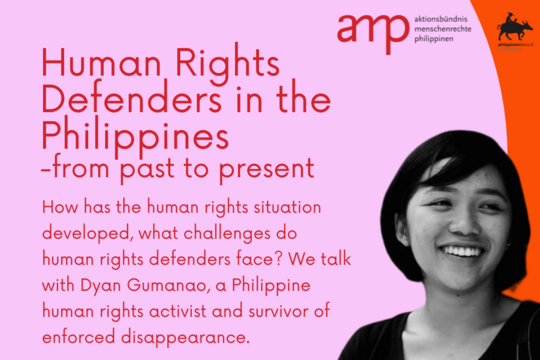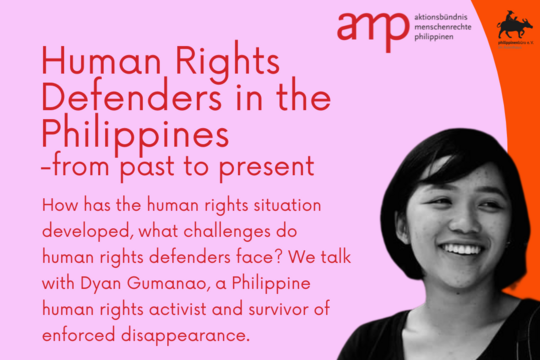For the second year in a row, the annual seminar of the philippinenbüro e.V. will deal with environmental and climate issues in relation to the Philippines. This year's focus is on approaches to ecological renewal and the question of who or what the approaches serve, what effects they have and what is needed to make climate protection measures socially just. This will be discussed on the basis of German raw materials policy and its links to the Philippines as well as the public transport sector in the Philippines and Germany.
The Philippines has always been a sought-after country for the extraction of minerals. The list of environmentally damaging effects and various human rights violations in connection with the extraction of raw materials is long. In March 2024, German Chancellor Olaf Scholz and President Ferdinand Marcos Jr. agreed on "close cooperation in the field of raw materials". Is there a threat of a new raw materials curse for the Philippines or are these just empty declarations of intent that underline the desperation of both sides?
With regard to the transport sector, the government decided in 2017 under former President Rodrigo Duterte that the traditional jeepneys (minibuses originally made from converted American jeeps) would gradually be phased out and replaced by newer, more climate-friendly models. This measure primarily affects jeepney drivers who are already struggling to make living and has sparked protests from both trade unions and climate activists. In Germany, too, trade unions and Fridays for Future have joined forces to fight for a socially just and climate-friendly public transport sector. Both here and there, the questions are: What can a socially just transition to an ecologically sustainable and climate-friendly transport network look like? Are the same exploitative practices that have dominated the extractive sector for decades being reproduced in the procurement of minerals needed for the renewal of the transport sector? What are civil society actors in the Philippines and Germany demanding and where can we join forces to fight for climate protection and social justice? How can we generate impact beyond the seminar through individual action and collective alliances? And what does it take?
These and other questions will be discussed at the seminar with speakers from the Philippines and Germany.
Register now at:
anmeldung(at)philippinenbuero.de
or by using the registration form
The seminar is being funded by: Engagement Global, Evangelischen Kirche im Rheinland, Evangelischen Kirche in Westfalen, Stiftung Umverteilen, Katholischer Fonds, United Evangelical Mission (VEM) and the Schmitz Foundation.









